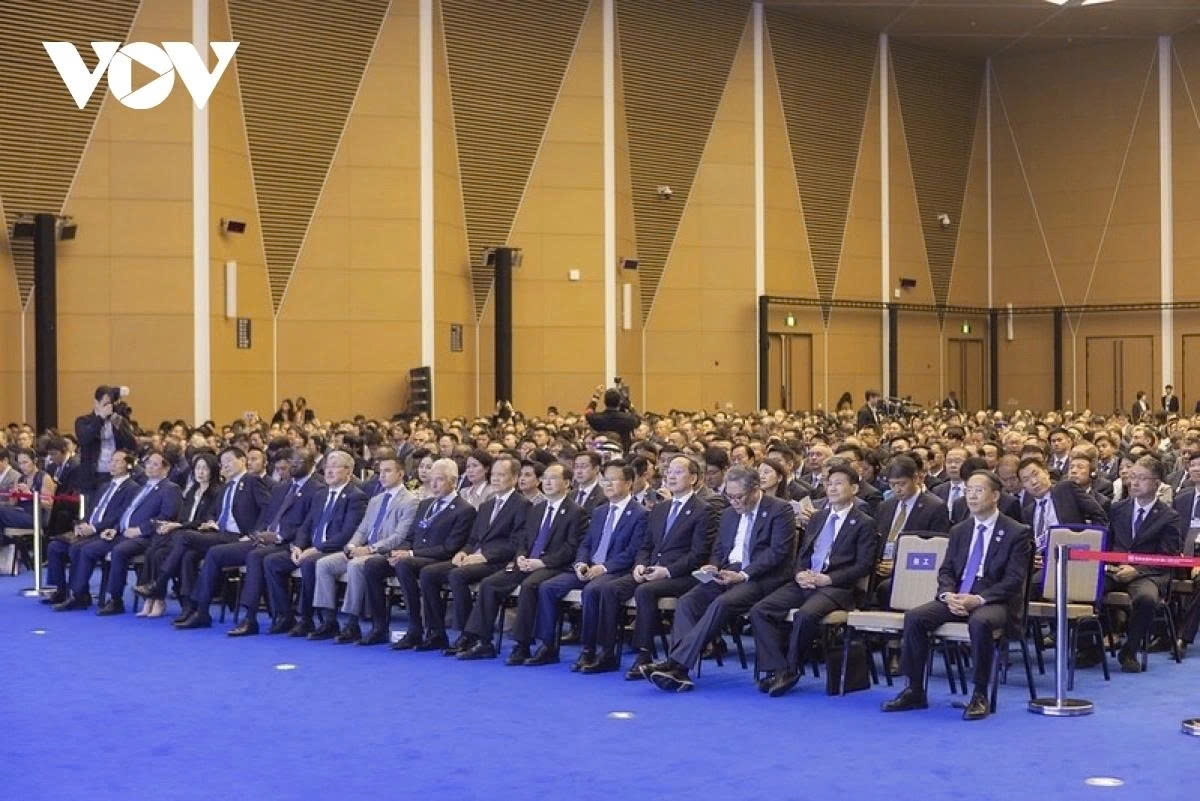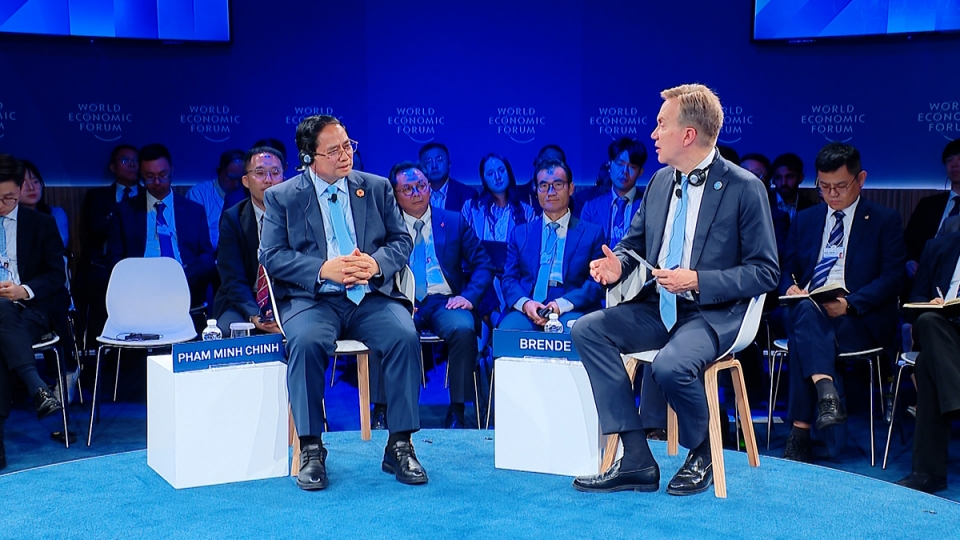Vietnamese PM attends opening plenary of WEF Tianjin 2025
VOV.VN - Vietnamese Prime Minister Pham Minh Chinh joined other world leaders at the opening ceremony of the 16th Annual Meeting of the New Champions of the World Economic Forum (WEF) in Tianjin, China, on June 25.

Themed Entrepreneurship for a New Era, WEF Tianjin 2025, dubbed the Summer Davos, has brought together over 1,700 leading figures from more than 90 countries and regions to explore how entrepreneurship and emerging technologies can unlock more dynamic and resilient economies.
The Vietnamese PM took part in the opening plenary alongside Chinese Premier Li Qiang, Singaporean Prime Minister Lawrence Wong, Senegalese Prime Minister Ousmane Sonko, Ecuadorian President Daniel Noboa, and Kyrgyz Prime Minister Adylbek Kasymaliev.
In his opening remarks, Li emphasised the importance of WEF Tianjin 2025 in promoting multilateralism, global trade and investment, and entrepreneurial spirit amid major shifts in the global economic landscape. He praised the crucial role of the business community in driving social progress and economic growth, and reaffirmed China’s commitment to opening its markets, sharing economic development achievements, and advancing science and technology for global prosperity.
During the forum, the Vietnamese Prime Minister engaged in several key discussion sessions, including one on Vietnam’s rising era, from vision to action.
This marks the third consecutive time Chinh has been invited by the World Economic Forum to attend the Annual Meeting of the New Champions, underscoring WEF’s recognition of Vietnam’s growing role and position on the global stage, as well as its impressive socio-economic development achievements.
WEF Tianjin 2025 features over 120 sessions and networking activities centred around five main themes. It looks at new growth trends amid geopolitical fragmentation, inflation, and unstable global supply chains; explores China’s development model based on technology, AI, next-generation industry, and market reform; focuses on smart manufacturing, artificial intelligence, clean energy technologies, and supply chain adaptation.
The forum also examines digital skills, climate finance, gender equality in technology, and public-private cooperation. It discusses renewable energy, electricity storage, green industrial materials, and next-generation nuclear technology.





